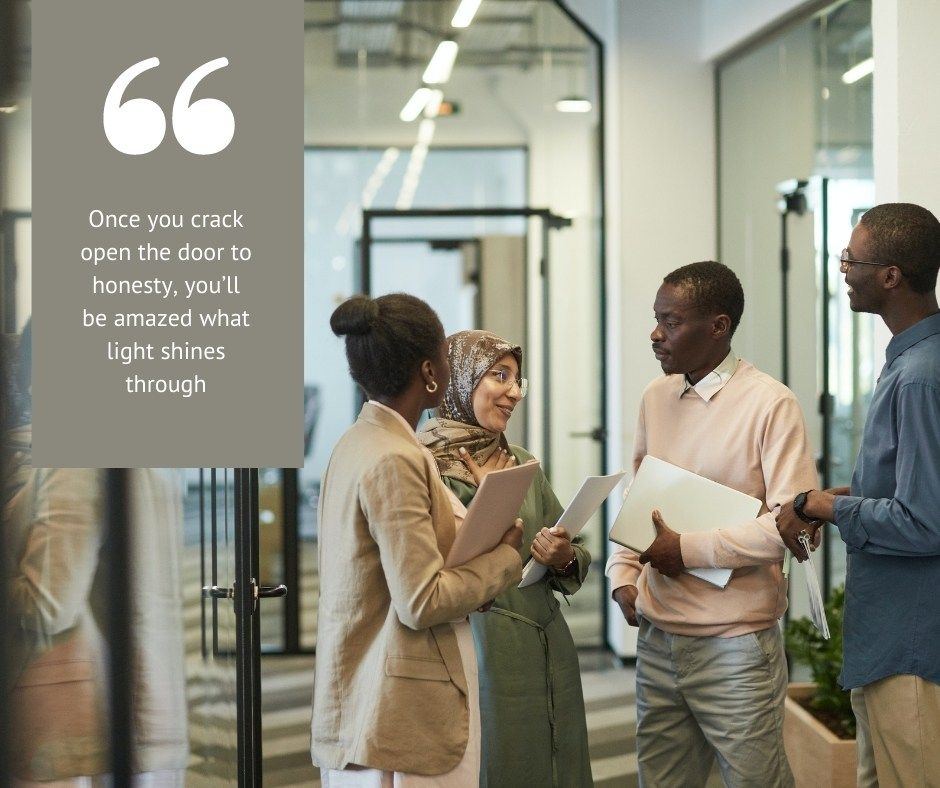What is pleasanteeism and how is it impacting mental health at work?
updated on Aug 24, 2022

Are you hiding behind a mask of pleasantries at work?
If I was to ask you, “How are you doing?” What would your response be? Now, imagine I’m a manager at work asking the same question – has your response changed?
There’s a new ‘ism’ in the workplace: pleasanteeism. This refers to the pressure many of us feel to conceal any stress, anxiety or low mood we may be feeling, choosing to hide behind pleasantries instead. This grin-and-bear-it workplace culture is on the rise, according to healthcare provider Lime Global. Surveying workers in the UK, in February 2022, Lime Global found that 75% of respondents admit to putting on a brave face at work, increasing from 51% in May 2021.
Looking at the causes of this rise, financial concerns and the cost of living were high on the list, with over a third of those surveyed saying they were worried about money. But, while recent economic shifts no doubt have a part to play, concealing negative emotions is something we learn early on.
“We’re taught to hide our feelings from an early age. To stop crying when we’re upset or in pain, to not be angry at people who hurt us,” burnout prevention coach Gaby Grzywacz explains.
“It’s no surprise we take those lessons into the workplace. While at work, we are expected to be professional – and we usually don’t see displaying our feelings as professional. So the thought of being open and honest about it doesn’t cross people’s minds.”
Gaby also notes that there is still a great amount of stigma surrounding mental health, with some fearing that they may be perceived as ‘weak’ – though she notes that it takes courage to be open about your feelings at work.
The fear that’s driving pleasanteeism may be palpable, but hiding your feelings isn’t the answer. Suppressing negative emotions can impact our mental health, affecting our self-esteem, and causing a rise in anxiety and depression. It can also harm our physical health, leading to increased blood pressure and memory problems.
So, how can we find that courage to be more open at work? First, let’s look at the root of the problem: workplace culture.
“If the company has the culture of pushing through all difficulties, delivering perfection, the whole ‘work hard, play hard’ nonsense, it’s unlikely that an employee would feel comfortable disclosing their feelings to their boss until they’re at a point where they can’t do their job,” says Gaby.

Employers need to take the reins when it comes to preventing pleasanteeism, cultivating a culture of openness. “It starts with simple things, for example, a manager admitting that they have a headache, or are feeling a bit down, so they won’t be at their best that day,” Gaby explains. “That shows their team it’s OK not to be at 100% all the time.”
Increasing the company’s awareness of mental health and self-care is also key. This may include introducing mental health training, reminding people that they can take sick days for their mental health, and encouraging breaks.
As well as companies taking responsibility for reducing pleasanteeism, there are steps we can take as individuals to start prioritising our wellness. Gaby explains that a helpful first step is to understand that no job is worth sacrificing your health for.
“If you don’t take care of yourself, your health will suffer. It’s not an ‘if’, it’s a ‘when’. So you need to try to plan your day around taking care of yourself.”
Gaby also shares her personal motto: ‘If you think that you don’t have time for a break, you should have two,’ serving as a reminder that when we work hard, we should rest hard, too.
“We live in a culture of productivity – but we don’t have to (and shouldn’t) fill our rest time with meaningful activities. And, remember, if you’re thinking of work while resting, you’re actually not resting at all.”
When it comes to being more open at work, start small. Consider how many conversations you have that aren’t about work, and see if you can increase these a little. Perhaps a quick check-in with teammates in the morning, asking how they spent their weekend/evening.
We are humans, not robots, and part of opening up at work is connecting to that human side. Once you crack open the door to honesty, you’ll be amazed what light shines through.
To find out more, visit Life Coach Directory or speak to a qualified life coach.

